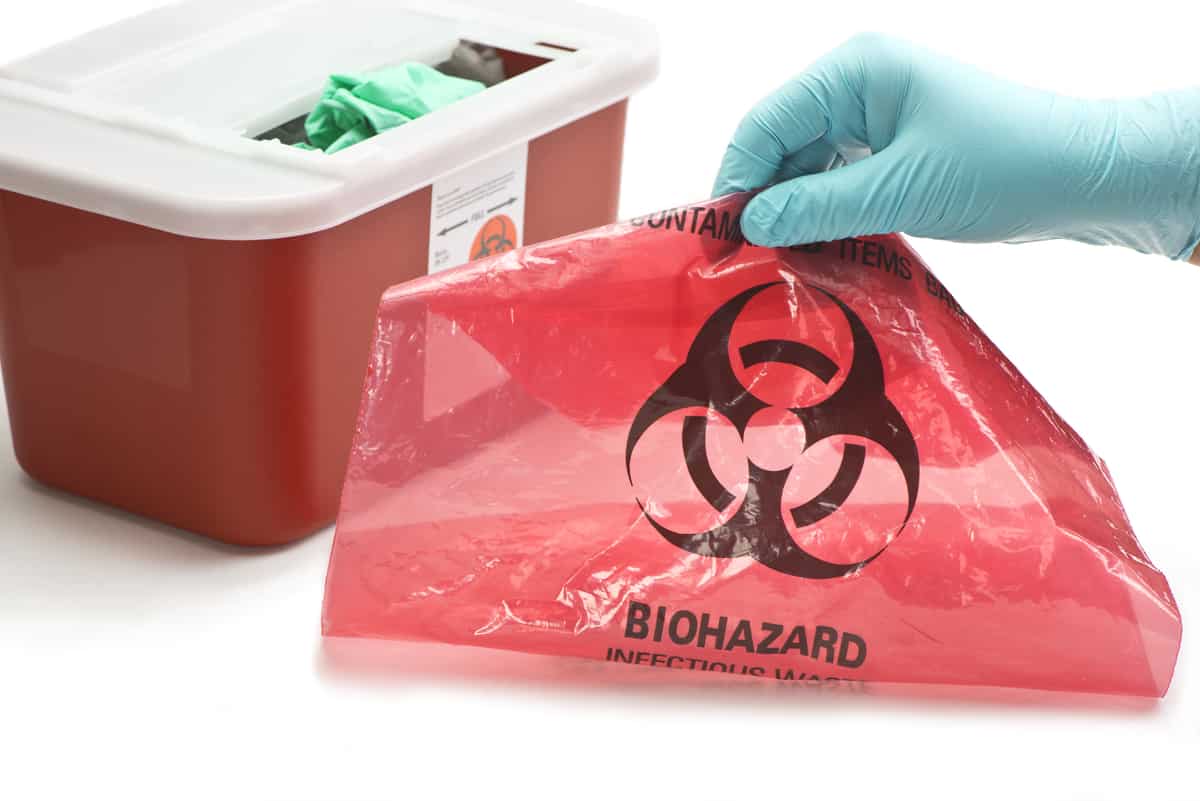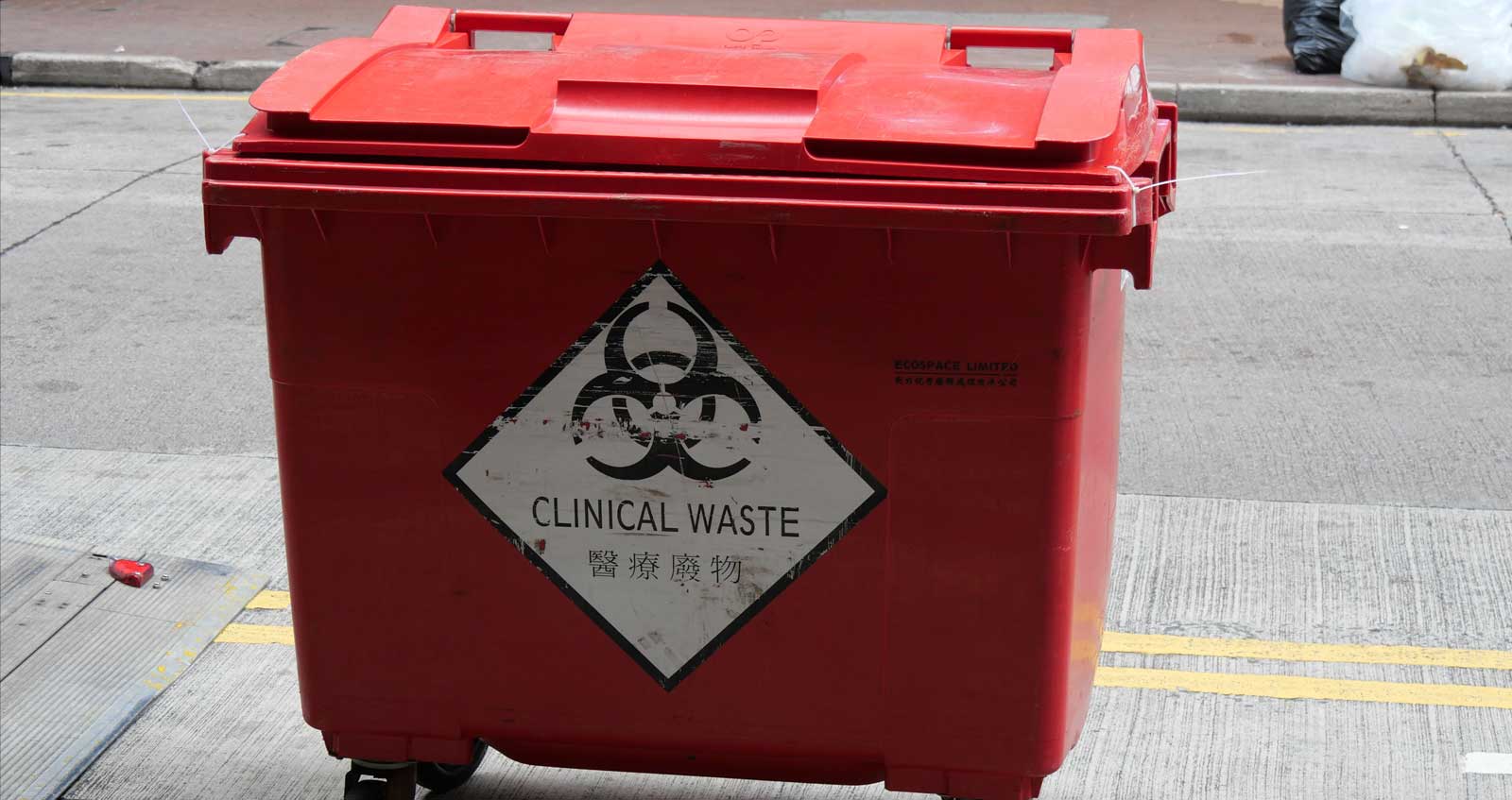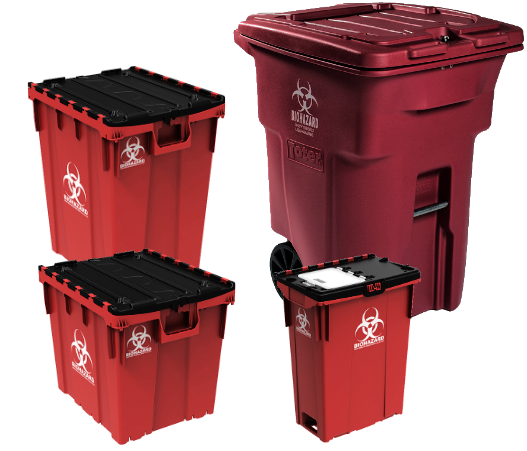Your Relied On Partner: Medical Waste Removal Services Tailored to Your Requirements
Effective and Environmentally Friendly Medical Waste Disposal Solutions
In the ever-evolving field of healthcare, the issue of medical garbage disposal remains a subject of critical value. As healthcare facilities, clinics, and various other medical care facilities strive to provide high quality patient care, they should also resolve the difficulty of effectively and sensibly disposing of their waste - medical waste removal services. In an era where ecological sustainability goes to the forefront of public consciousness, finding solutions that are both environmentally pleasant and effective is not just a matter of compliance however also a testimony to the dedication of healthcare establishments towards a greener future. From waste segregation methods to cutting-edge recycling initiatives, this conversation will certainly check out the various strategies used to tackle this pressing issue, leaving you fascinated and excited to check out the prospective services that exist in advance.
Waste Segregation Practices
Efficient waste segregation practices are vital to guarantee the risk-free and appropriate disposal of medical waste. Clinical waste, that includes products contaminated with possibly contagious materials, have to be taken care of in a manner that minimizes the threat of damage to both public wellness and the environment. Proper waste partition plays an essential role in accomplishing this objective.
Waste segregation includes the splitting up of various types of waste based upon their characteristics and possible dangers. This process makes certain that each kind of waste is treated and disposed of properly (medical waste disposal services with WasteX). It begins at the factor of generation, where healthcare centers must have marked containers and containers for different waste classifications, such as sharps, contagious waste, pharmaceutical waste, and non-hazardous waste
By segregating clinical waste at the source, health care carriers can avoid cross-contamination and minimize the risk of direct exposure to infectious agents. This method likewise facilitates the recycling and recovery of particular materials. Setting apart and reusing tidy plastics and glass minimizes the demand for raw products and lessens the environmental impact of clinical waste disposal.

Autoclaving and Sterilization Techniques
In order to guarantee the proper and risk-free disposal of medical waste complying with effective waste partition methods, medical care centers must use autoclaving and sterilization techniques. Autoclaving is a commonly used method that uses high-pressure heavy steam to sanitize medical waste.
This includes treating the waste with chemicals such as ethylene oxide or hydrogen peroxide, which eliminate microorganisms by disrupting their mobile framework. It is important to note that chemical sanitation calls for appropriate handling and disposal of the chemicals utilized, as they can be harmful to human health and the setting if not handled properly.
On-Site Waste Therapy Solutions
Medical care facilities have executed on-site waste therapy systems to deal with the disposal of medical waste in a efficient and safe fashion. These systems give a practical and cost-efficient option for taking care of clinical waste generated within the facility. On-site waste treatment systems utilize different modern technologies to get rid of and treat of clinical waste on-site, minimizing the requirement for transportation to off-site centers.
One commonly made use of on-site waste therapy system is the microwave technology. An additional system is the chemical disinfection technology, which involves treating clinical waste with chemicals to eliminate microorganisms and minimize its harmful nature. medical waste disposal services with WasteX.
On-site waste therapy systems provide a number of advantages. They eliminate the danger of medical waste being mishandled throughout transportation, reducing the capacity for contamination and direct exposure to damaging materials. In addition, these systems assist healthcare centers abide by waste management guidelines by providing a reliable and convenient disposal technique. Furthermore, on-site therapy systems minimize the total environmental influence of medical waste by reducing transportation and the need for land fill space.
Recycling and Repurposing Campaigns
As health care centers pursue sustainable waste monitoring methods, they are increasingly discovering recycling and repurposing initiatives as a means of decreasing the ecological impact of clinical waste. Recycling and repurposing efforts entail locating innovative ways to recycle or transform medical waste right into brand-new products or products. This not just assists to lessen the volume of waste that ends up in burners or garbage dumps but additionally decreases the usage of raw materials and energy required for manufacturing new items.
One example of recycling in the healthcare industry is the reprocessing of single-use clinical devices. These gadgets, such as medical instruments or catheters, are typically thrown out after a solitary use. However, advancements in modern technology and stringent sanitation procedures have actually made it possible to safely clean, disinfect, and reuse these gadgets multiple times. This not only decreases the amount of waste produced however also conserves healthcare centers substantial costs related to buying brand-new devices.
An additional reusing initiative entails the recycling of plastic containers, such as drug bottles or syringe housings. These containers can be gathered, sorted, and sent to recycling facilities where they are processed, thawed down, and transformed into new plastic items. This helps to save sources sites and decrease the demand for virgin plastic manufacturing.
In addition to reusing, repurposing initiatives entail discovering different uses for medical waste. Shredded paper waste from clinical records or product packaging materials can be repurposed as bed linen product for pets or as insulation product. Natural waste such as food scraps from healthcare centers can be composted and made use of as fertilizer in gardens or agricultural areas.

Renewable Power Solutions
One effective technique to alleviating the ecological influence of healthcare procedures includes executing renewable resource remedies. Healthcare centers, such as facilities and medical facilities, consume substantial amounts of power for various objectives, consisting of lights, home heating, cooling, and running medical tools. By transitioning to renewable resource resources, these facilities can significantly lower their carbon footprint and add to a more lasting future.

Carrying out sustainable energy solutions in medical care facilities not just decreases greenhouse gas exhausts yet additionally uses long-lasting price savings. While the preliminary financial investment in renewable power infrastructure may be higher, the lasting functional expenses of renewable power systems are significantly reduced contrasted to conventional fossil fuel-based power sources. In addition, renewable resource systems are reputable and can provide a uninterrupted and stable power supply, ensuring continuous health care solutions also during power failures or emergency situations.
Conclusion
In conclusion, carrying out reliable and eco pleasant clinical waste disposal solutions is crucial for preserving a lasting medical care system. By embracing waste segregation methods, autoclaving other and sterilization methods, on-site waste therapy systems, reusing and repurposing initiatives, and renewable energy remedies, healthcare centers can substantially minimize their ecological effect.
It begins at the point of generation, where healthcare facilities ought to have assigned containers and containers for various waste categories, such as sharps, infectious waste, pharmaceutical waste, and non-hazardous waste.
In order to ensure the correct and risk-free disposal of medical waste complying with effective waste partition methods, healthcare facilities must employ autoclaving and sterilization strategies.Medical care centers have actually applied on-site waste therapy systems to deal with the disposal of medical waste in a safe and efficient fashion. On-site waste therapy systems use various modern technologies to dispose and treat of medical waste on-site, lessening the requirement for transportation to off-site facilities.
As healthcare centers make every effort for lasting waste management techniques, they are progressively exploring recycling and repurposing efforts as a method of lowering the environmental influence basics of medical waste. - medical waste removal near me